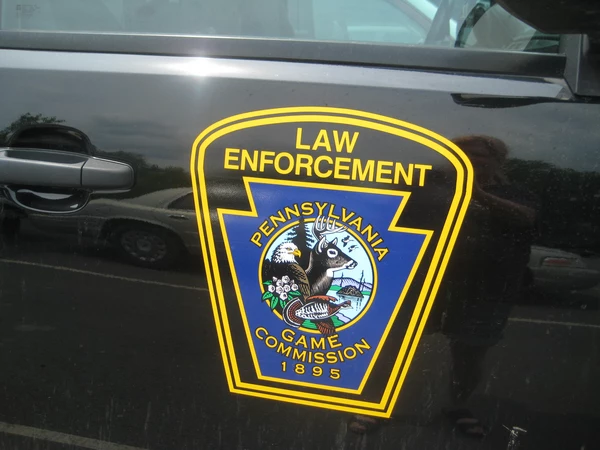Three things you may not know about Pennsylvania Game Commission Officers and Waterway Conservation officers
By Katherine McShane, Esquire and Kaitlyn Clarkson, Esquire [Edited by Justin J. McShane, Esquire, F-AIC, F-AAFS]

They have statewide jurisdiction.
Just as deer and other wild animals cross city and county lines, so does the jurisdiction of Game Commission and Waterway Conservation officer. Although Commission officers in Pennsylvania may have a home base of operations as designated by the Pennsylvania Game Commission and Fish and Boat Commission, their jurisdiction is statewide. This means that a Commission officer’s jurisdiction extends to every corner of the state where wildlife can be found: from the bottom of a riverbed, to the skies where fowl fly, and all land spanning Pennsylvania’s borders. This obviously applies to public property, but even private property to a certain degree (see the below).
They have cross-subject primary matter jurisdiction and can enforce laws beyond fish, game and boating.
A Commission officer’s subject-matter jurisdiction is just as wide as their geographical jurisdiction. While the Game Commission has authority over all wildlife related laws, and the fish and boat commission has primary jurisdiction over waterways – including boating and fishing – each organization is granted the authority to enforce the laws of the other. Additionally, when acting in the scope of their employment, Game Commission officers and Waterway Commission officers have the authority to enforce all criminal laws, even those wholly unrelated to hunting or fishing.

There is great tension in the law between what the Pennsylvania Legislature says that they can do and what our state and federal constitutions say that they can lawfully do.
Game Commission officers and Waterway Conservation officers have full police power to inspect, search, seize, and/or arrest. Note, this police power is not simply for hunting and fishing violations. Commission officers possess the full power to arrest for any violations of the law, hunting and fishing related or not. Game Commission officers can even arrest for a DUI provided they obtain legal grounds for the stop and arrest while within the official scope of their employment. Commonwealth v. Carlson, 705 A.2d 468 (Pa.Super.1998)
Just as we wrote above, a Game Commission officer has statewide policing powers. And as such is an agent of the government. The Game Commission officer is still restricted by both the federal and Pennsylvania constitutions. Where the tension comes into play is what is in the Game Code versus what is prohibited for police to do per the constitutions.
On the books (The Pennsylvania Game Code), in Section 901(a)(8) provides Game Commission officers the authority to “conduct administrative inspections of persons, licenses and permits, firearms, ammunition and other implements of taking, game bags, game, meat poles, tags, clothing, waterfowl blinds, decoys, tree stands, immediate hunting locations, or any means of transportation used as blinds or hunting locations, any coolers or containers possessed at a hunting location when prima facie evidence of hunting exists.” Note that by the text this applies to even law abiding hunters and anglers who have done nothing wrong and have not even been suspected of doing anything wrong! Per the Pennsylvania Game Code, the only requirement to trigger this broad warrantless and suspicionless activity is that the Game Commission officer have prima facie evidence of hunting. Prima facie evidence of hunting includes “possession of any firearm, bow and arrow, raptor, trap or other device of any description usable for the purpose of hunting or taking game or wildlife; possession of the carcass or any part or parts of any game or wildlife; or pursuing any game or wildlife in any manner prohibited by this title or commission regulation.” This means, per the Game Code, that if there is prima facie evidence of hunting, the officer can search basically everything you have, including any container possessed at the hunting location, no matter how small. For example, the Altoids box we mentioned earlier, even though it is small, can be searched simply because it is at the hunting location. Even if you are doing everything by the books, per the Game Code, the simple act of hunting can open you up to a search by a Game Commission officer – even when there is no evidence that any laws have been broken. This is what the Game Commission officer. But there is a great tension there between the Game Code and our constitutions. This is where an experienced lawyer can make all of the difference in the world.
A Game Commission officer may go upon any land or water, outside of buildings, except the curtilage of a home in performing his duties; may stop any transportation upon reasonable suspicion or road checkpoints; and search any person, car, clothes, bags, or other containers upon probable cause, consent, exigent circumstances, or other exceptions to the warrant requirement. 34 Pa.C.S. §901(a).
Pennsylvania law authorizes Commission officers to go “upon any land or water outside of buildings, except curtilage, posted or otherwise, in the performance of the officer’s duties.” This broad sweeping rule however does not permit a Commission officer to come into or near your house, your shed, or your yard near your house without probable cause. The PGC follows the Open Field Doctrine, which holds that open fields, even when posted with “No Trespassing” signs “do not provide the intimate setting for those intimate activities that the Amendment is intended to shelter from government or interference or surveillance. There is no societal interest in protecting the privacy of those activities, such as the cultivation of crops that occur in open fields.” Commonwealth v. Russo, 594 Pa. 119 (Pa. 2007). So while a Game Commission officer may, under the Open Fields Doctrine, go onto some private property, it does not give them carte blanch to go onto all of your private property. Where they can go without probable cause depends on how the court defines curtilage. Curtilage is generally considered to be your home and the area of land attached; however, what is or is not curtilage is often determined on a case by case basis. In the Russo case, a bait pile was found by the Game Commission officers approximately 90 feet from Russo’s cabin. The court found that the area where the bait pile was found was not considered curtilage in that case. What is protected by the 4th Amendment is not always clear and for that reason it is important to always have a knowledgeable attorney on your side who can fight for your rights.
Although we paint a bleak picture, the scope of a Game Commission officer is not completely free of the constraints of the 4th Amendment and the Pennsylvania State Constitution. In order for a Game Commission officer acting in the scope of his official duty to stop a vehicle, the officer must have reasonable suspicion or probable cause. In order for the officer to search the vehicle, he must have consent or possess probable cause. Further, if a Game Commission officer is no longer acting within the scope of his official duties, he cannot stop a vehicle even if he has reasonable suspicion or probable cause.
Finally, the Game Code makes it a crime when someone does not answer a Game Commission officer’s questions. But our Fifth Amendment right still applies making any attempt to cite someone for it unconstitutional.
The lesson is that the Game Commission officer believes that his powers to trespass on private land, stop and search anyone, stop and search cars, and try to make people answer questions under penalty of law…. even for no reason are extensive.
